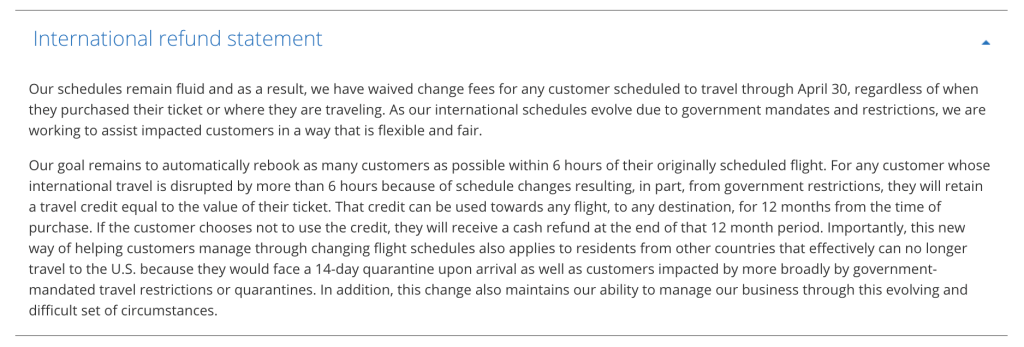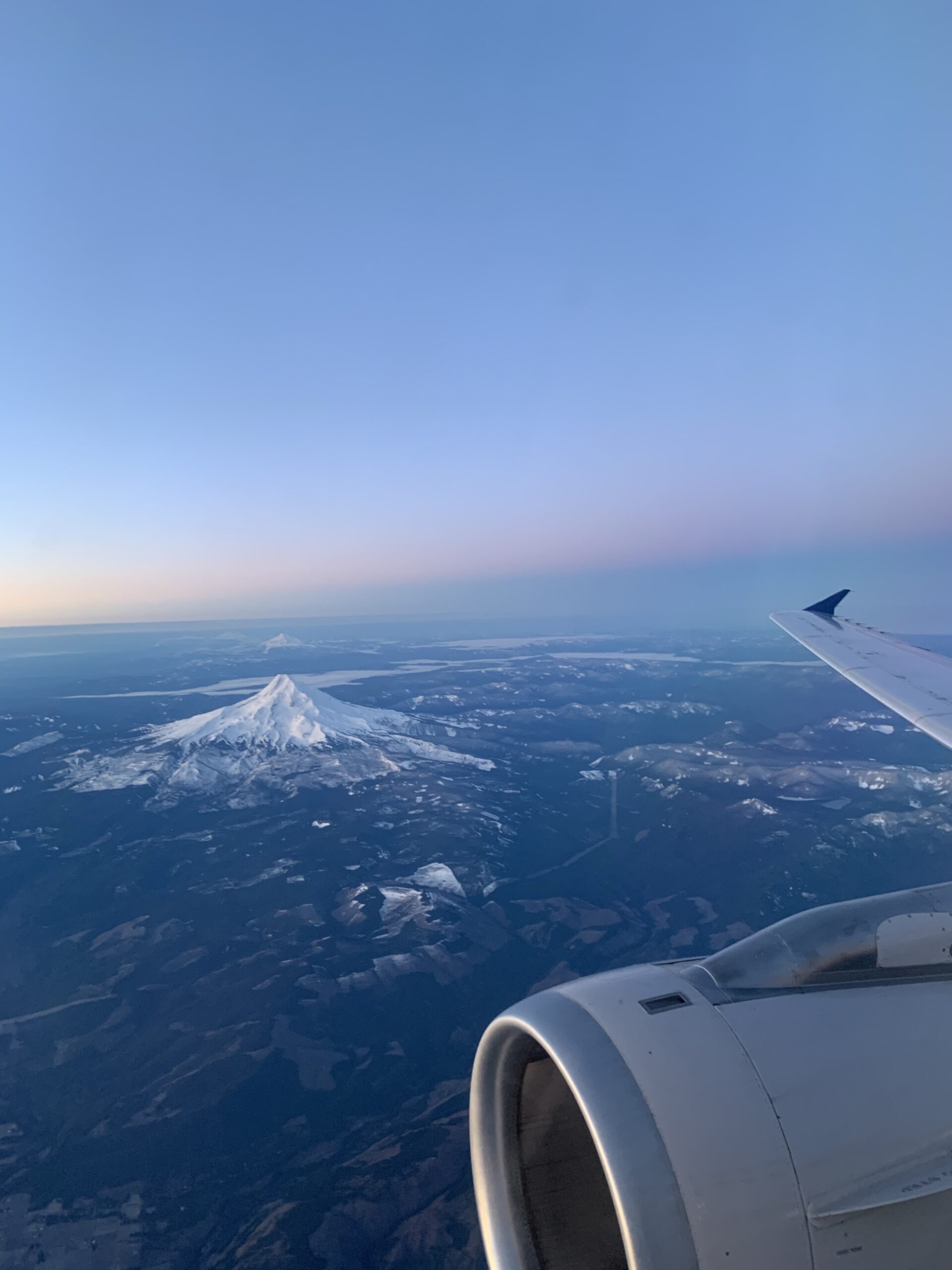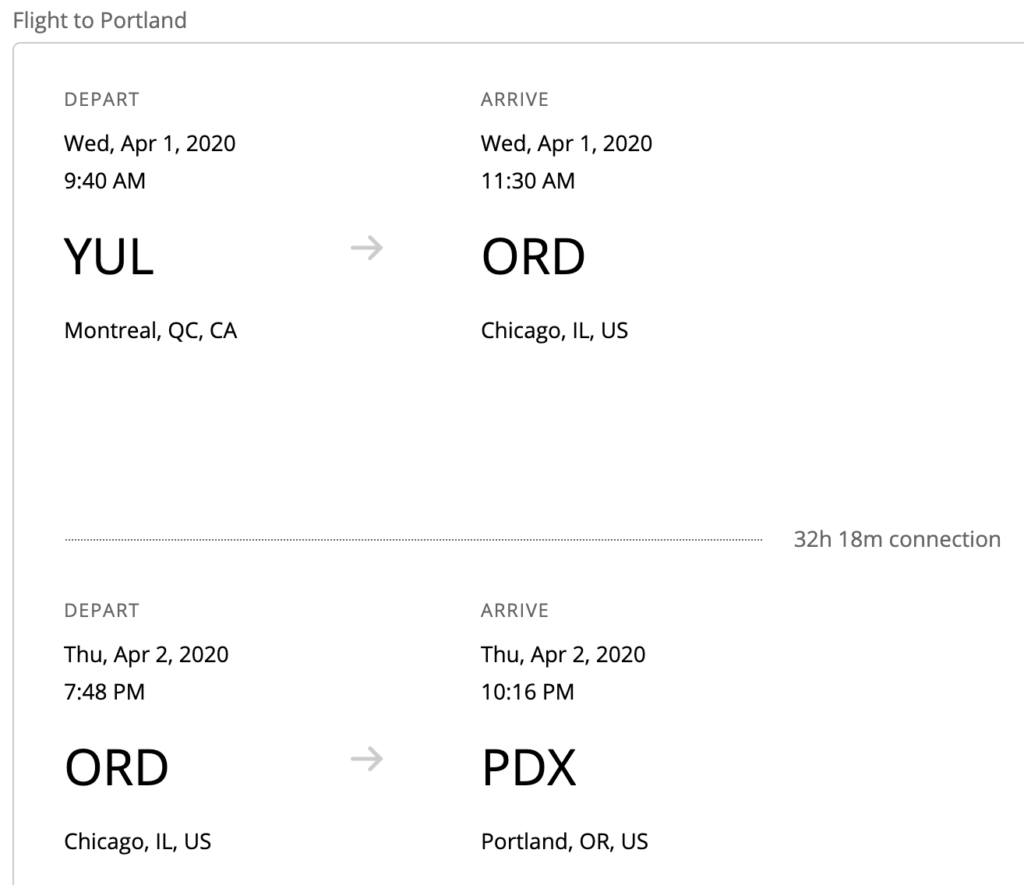Dr. Jeffrey VanWingen shares some good tips on shopping safely and keeping items sterile during the Covid-19 pandemic.
Month: March 2020
Quarantine
Quarantine, social distancing, self-isolation, whatever you want to call it, we’re all in the middle of it right now (well, some of us). I am recovering from a nasty ear infection, but otherwise healthy. We’ve only left the house to grab some groceries for some friends who are on a mandatory quarantine for 14 days after being out of the country, to pickup a takeout dinner, and to walk the dog to the park. It is strange to not hear the normal traffic or see people out doing things. Yesterday on my way to pickup takeout I realize that it was the fewest number of cars I have ever seen on the road.

A lot of Portland restaurants are delivering which is great and allows customers to still support them while this is going on. At the same time, a number of restaurants, bars, etc. have closed and sadly I have my doubts that they will ever open their doors again. Closer to us, friends are being laid off due to the lack of work and hours for others are being cut.
This is supposedly a great time for introverts, “we were built for this” is the slogan. I’m an introvert and while I somewhat agree, we as humans are a social species. We enjoy going to a restaurant to share a meal or a bar to have a drink and talk about our lives. Even the small social interactions that we take for granted have been yanked from us, the “good morning” to the bus driver, the small talk with your coffee shop barista, or the banter at a local shop have all suddenly disappeared. Sure we can use Zoom or some other video conferencing software, but being physically close to someone while you talk is a special experience that I don’t think online video mimics.
Patience also seems like a virtue that has vanished during all of this. Grocery stores, where we should be vigilant at keeping distance between each other have become thunderdomes for selfishness. People not patient enough for someone else to pick something are bumping into each other and generally being rude. This is the time for patience to win. I don’t want to be in the stores any longer than I need to be, but there is no reason for us to put each other at risk by rushing. Take a breath, we’ll get through this.
At Home
I will be the first to admit that I am going a little stir crazy. A walk around the neighborhood helps, but I’ve been fighting an ear infection for the last two weeks that has left me temporarily deaf in my left ear. This makes walking an adventure that I’m not necessarily prepared for. I can’t hear things coming from my left so my reaction time is much slower, so getting out of the house isn’t the most fun.
Inside the house I am working my normal job but also trying to come up with things to do. Writing this was on my list. Writing more is next. I have a few programming project ideas that I would like to start and this weekend will be a good opportunity for that. Organizing my wreck of desk is also something I should do, even though it is the one thing that interests me the least.
So, what are you doing with your time? How are you dealing with social distancing?
The Great Empty
This photo essay by the NY Times of cities during the quarantine is eerily beautiful.

United Really Doesn’t Want to Give Refunds
I had a flight scheduled for work travel, heading to Montreal on March 16 and back to Portland on March 19. Due to Covid-19 restrictions I moved that flight to March 30 with a return on April 2. After rebooking, United made a number of route network changes, including get rid of Washington-Dulles to Portland, which made up part of my return from Montreal. I was rebooked via Chicago and thought that was the end of it. I would have a five hour connection and it would be fine.
Yesterday United announced they would stop all flying to Canada on April 1. A few hours later I received another schedule change e-mail from the carrier saying I would now leave Montreal on April 1 at 9:30am and arrive in Portland at 10pm on April 2. This involved a 32 hour connection in Chicago.
To me this type of connection seems unreasonable, so I called United to ask for a refund. I know that their policies have seen a number of changes, including one that said only schedule changes with a 24-hour impact can be refunded. Their latest policy is even more harsh than that.

So, any flight that is impacted more than six hours can be cancelled but can’t be refunded until after a year has passed. Seems crazy right? I’ve given United money for a flight that no longer flies. So I called United. I was told that there were no options for me to receive a refund. I asked who was going to pay for the hotel bill at O’Hare, or did they expect me to sleep on the floor? This agent was just doing her job and did call a supervisor who also denied my request for a refund.
There is no reason that my money should not be returned to me. Sure, the world is in crisis but if you the airline can’t actually deliver a customer from point A to point B, then it is unreasonable to hold onto their cash until the customer decides to go somewhere else. There is no guarantee that United will be around in a year. What happens to my cash then?
My plan is to dispute the transaction with my credit card provider, file a DOT complaint, and write a note to my Senator. The note will be a summary of the situation and that my belief is that the US government shouldn’t hand out any bailout money to the airlines until this type of stuff is stopped.
If you are facing a similar situation, I’d love for you to comment. Or better yet, write your Senator.
COVID-19, Travel, and the Future
By now I am sure you are all too familiar with Coronavirus Disease 2019 (COVID-19) but I wanted to write about some of my recent travel experiences and what all of this could mean for the future of aviation and travel. I am not a doctor or epidemiologist so my health expertise is limited to what my doctor friends tell me and what I read from the World Health Organization or CDC.

A lot of corporations have already put restrictions on travel. Some have said no travel to places affected by the virus while others have stopped all non-essential travel. The impact that these travel restrictions will have on the travel industry are already being felt. For example, Lufthansa has announced a 50% cut in capacity. That’s huge.
In addition, the extent to which the entire Airbus A380 fleet (14 aircraft) can be temporarily taken out of service in Frankfurt and Munich is currently being examined.
They are even considering grounding the A380 during the cuts!
Danny Lee of the South China Morning Post has also reported on Cathay’s cuts:
Hong Kong’s battered flagship airline will reduce overall flight capacity by about 30 per cent, its chief executive Augustus Tang Kin-wing said on Tuesday.
The carrier, one of Asia’s premium airlines and one of the biggest corporate victims of several months of anti-government protests in Hong Kong, has seen passenger numbers collapse by 50 per cent in recent days, sources said, citing comments from a briefing on Monday led by Mark Hoey, the airline’s general manager of operations.
Again, huge. Cathay has already been struggling with the protests in Hong Kong and are now doing what they can to save cash and keep the airline viable.
On the United States side of things, all of the major carriers have significantly reduced their amount of flying to Asia. These reductions started with China and Hong Kong but have been expanded to Japan, South Korea, and other Asian destinations. A recently leaked internal memo to United Airlines staff stated that the international flight schedule will be reduced by 20% in April and those cuts will likely last until the end of May. Domestic flying will also see cuts of around 10% in April and it is unclear when that capacity will return to the schedule. You can read the full memo on JonNYC’s Twitter post.
All of these cuts add up to real dollars. The International Air Transport Association (IATA) has stated that the coronavirus could impact global airline revenue anywhere between $63 billion and $113 billion. There is not much to say to that except, wow. The landscape of the airlines could drastically change by the time this illness is contained and the number of cases starts to dwindle.
*Update – I have left this post in a draft form as I wrote it. As the news has evolved, I have tried to update the post. Some of the latest news from Delta is that bookings are down 25-30% (worse than expected) and that demand erosion is very evident. Not good times for airlines. That’s the story.
My Recent Travel Experiences
For me, my recent flights and overall travel experiences have been relatively uneventful and normal. What has surprised me the most is that the airports I frequent (O’Hare, Portland, Newark, and Montreal) have been very busy even as airline schedules have been reduced. A lot of travelers are wiping down their seat area with sterile wipes and wearing masks and/or gloves. There is also the strange phenomenon of seeing people leave the restroom without washing their hands, a bizarre choice in these times.
Personally I have tried to be more aware of touching my face. It’s more difficult than it seems, especially while I sit and work on my laptop. I think the best advice is not “No face touching” but to be aware of when you are doing it and to make an effort to correct the behavior. There is no way you’re going to stop it completely so don’t beat yourself up over it.
What should you be doing with your travel plans? Make sure the flights and hotels are still open and operating as expected. If you are worried about travel, all three of the major US carriers (Delta, United, and American) are allowing changes for free for flights until late April. Call your airline and move the trip. If you are still planning to take your trip, wash your hands, be aware of how much you touch your face, and cover your mouth and nose when coughing and sneezing.
The Future
I am generally concerned about the airline industry and the travel industry as a whole. A number of airlines are already struggling, cutting massive numbers of flights yet hoping to stay alive long enough for demand to bounce back. A few more months of depressed travel and the potential for airlines being unable to sustain their operations financial becomes much more real. The same could be said for industries where customers showing up is the whole business (restaurants, brick & mortar stores, etc). Fewer people coming in means less cash while expenses stay the same. That’s what concerns me the most.

